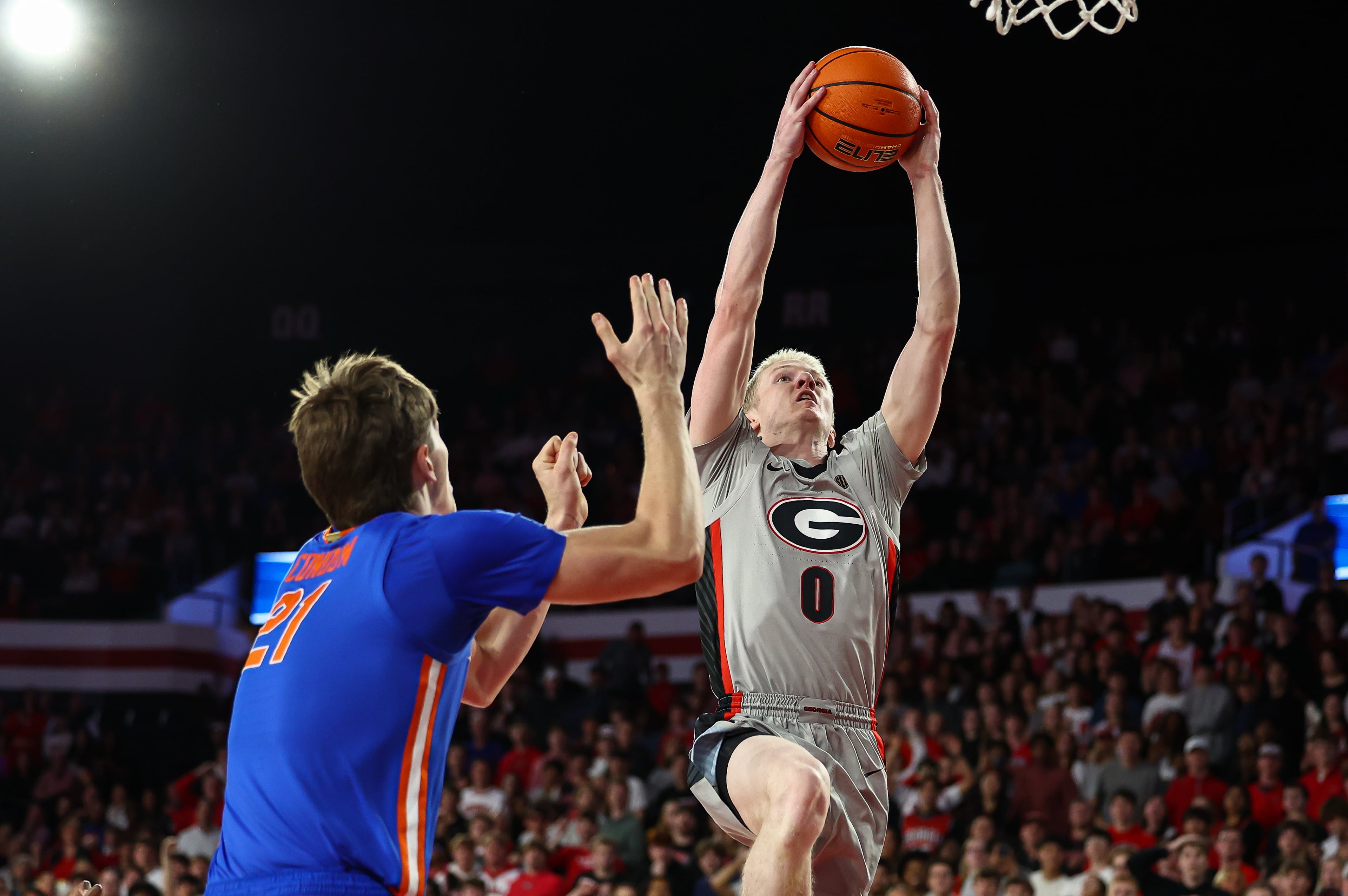Greg Sankey: SEC poised to tackle tough topics as spring meetings begin

DESTIN, Fla. — Greg Sankey pulled a card out of his wallet Monday night to prove a point.
The SEC commissioner was having a spirited discussion with a small group of sports writers at the Hilton Sandestin Resort about how the SEC might need to get more money from ESPN in its television agreement if the league wanted to add a ninth conference game in football. It was evident during this discussion that a ninth game is Sankey’s desire, though there seems to be growing opposition from league members who want to stick with eight games. The issue is over compensation and revenue production.
That’s when Sankey piped up about money not needing to be the basis for every decision.
“I actually carry around a decision-making card that says, ‘money follows, it doesn’t lead,’” Sankey said. “That’s the same here. Somebody says this, somebody says that, sure. We have a contract, we have a great relationship, we’re going to be in communication. But when all you do is chase money, you make really bad decisions. We’re seeing that in college sports right now with NIL.”
Excellent point, for sure, but does he really carry around a “decision-making card?”
Sankey reached into his wallet, dug through some petty cash and tossed onto the table something that looked like a business card. On he had printed his personal list of leadership best-practices.
There it was among several other epitaphs: “Money follows. It doesn’t lead.”
“If all we’re doing is chasing money, we’re not going to make very good decisions, and we’re not going to do that,” Sankey continued.
So is the mood of the SEC’s commissioner this week. Entering his eighth year at the helm of the most powerful conference in collegiate athletics, Sankey is bowed up for a fight at the SEC Spring Meetings.
And fights are coming. The scheduling model for the newly expanded SEC is just one of several issues that will get addressed in the meeting rooms of the Sandestin Hilton. They will also address NIL’s impact on recruiting and transfers, fan celebrations in the competition area, information control with regard to gambling, and many other issues.
The coaches, athletic directors, faculty athletic representatives, woman administrators and communications directors will all meet separately Tuesday. By Thursday, everybody else leaves and their recommendations on a variety of issues will be forwarded to the ADs and presidents. Sometime that day, there will be votes.
There must be at least an 8-6 majority for a motion to pass; 7-7 fails and requires more deliberation or another motion.
“I always appreciate the energy at the beginning of the week, but the work gets done at the end of the week,” Sankey said.
Oklahoma and Texas, officially joining in July 2024, will have coaches and administrators in every meeting. But they’re there only to observe and not to vote.
In a brief scrum with reporters on site Monday, Sankey shared his feelings on a number of issues expected to be debated at this week:
On the importance of protecting secondary and tertiary rivalries in the new scheduling model …
“Those are huge games on the scale of college football. We have an opportunity to play those every other year or every year. That’s the issue. It’s not like they’re not going to be played for 12 years, which is our current reality, or once every six years. The models that are part of our consideration will not have that circumstance. It’ll be a every-other-year circumstance at the longest gap. But the dialogue is around playing those big games every year.”
On fans rushing the field to celebrate ...
“It’s a problem, and it’s been identified as a problem. … So, we’re going to have continued dialogue about how to resolve it and protect visiting teams. I don’t want end-of-game situations to be interfered with by fans. We’re going to have to figure it out. We’ll have lively debates and sophisticated conversations about how we can manage this. We don’t want to have people crushed.”
On the dominance of the SEC in football, winning 13 of the past 16 championships, and if an expanded playoff might threaten that …
“Whenever you’re in a competitive environment, you’re putting at risk winning and losing. If it was simply money, the Yankees would have even more championships. Those are realities. It’s culture. It’s the people involved who are competing, who are able to withstand the moment. It’s coaches. There’s a lot that goes into that success. We want to support that success, but it’s not just a linear motion.”
On the influence of state legislators enacting NIL laws …
“It’s exactly what we warned about, what I warned about. Our states are making a mess of college athletics. Our states are adopting laws that are not helpful to conduct conference competition and national competition. … It emphasizes a need for a national standard.”
On ensuring competitive integrity amid the growing influence of legalized gambling …
“We’ve got to continue to adapt, adjust, educate, oversee. Our states have to play a role in that, whether it’s protecting against hostility, and some states have passed laws that bar people who participate in gambling activity and make threatening statements. That idea should populate itself more broadly.
On whether injury reports should be incorporated to combat that …
“That’s one of those leadership opportunities for me. I’ve spoken about it before, and I’ve said that’s coming. I think what we’ve seen around the accessing of information of late magnifies it, and we should use the opportunity to rethink the traditions of college sports, which has been to think we’re protecting information. But it’s not just when the information flows through us. Information escapes, and it escapes frequently.”
On protecting sensitive information …
“I don’t think people think about a young person walking to class or being in a classroom or a study group with people who may be involved in legalized sports wagering. With have student assistant trainers, student assistants in sports information, student assistants in academic counseling. They are all sources of information that doesn’t exist at the professional level. We’re too naïve to those realities. … I don’t run around like Chicken Little, but I work to try to achieve outcomes that support healthy competition.”
On whether he believes a football scheduling decision will be made this week …
“The phrase I used last year was we were poised, and then we didn’t. So I think we’re poised to make a decision, but time is still a bit of an asset. … I’ve talked about this being the finish line. It’s just going to take some work.”



